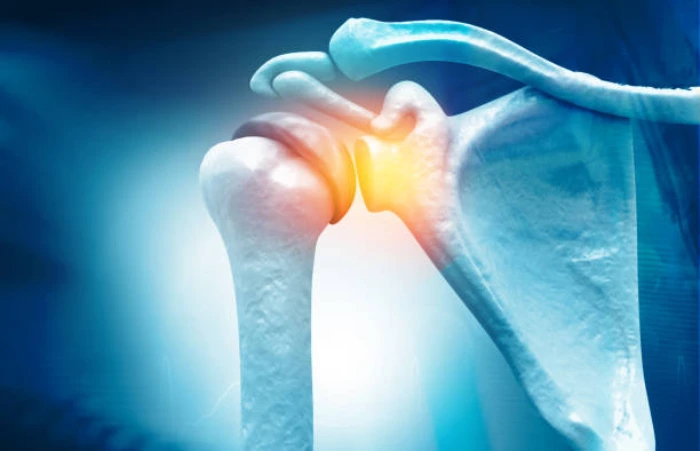Too Many Requests from Your Network
Please complete verification to access this content.
This article examines the optimal sleep schedule for waking up at 4am. It aims to provide an objective and informative analysis of the science behind waking up early and the benefits of maintaining a consistent early morning wake-up routine.
By exploring the importance of sleep schedule and calculating the ideal bedtime for a 4am wake-up, readers will gain insights into adjusting their sleep routines effectively.
This authoritative piece is intended to engage an audience seeking belonging in understanding how to optimize their sleep patterns for an early morning rise.
Understanding the Importance of Sleep Schedule
The significance of maintaining a consistent sleep schedule is integral in understanding the importance of managing one’s sleep patterns.
Creating a sleep-friendly environment and managing stress are key factors that contribute to better sleep.
A consistent sleep schedule helps regulate the body’s internal clock, known as the circadian rhythm, which governs the timing of various physiological processes.
By going to bed and waking up at the same time every day, individuals can synchronize their circadian rhythm with their desired wake-up time, such as waking up at 4 am.
Additionally, establishing a sleep-friendly environment involves optimizing factors such as temperature, noise levels, and lighting to promote relaxation and reduce disturbances during sleep.
Effective stress management techniques, such as mindfulness exercises or relaxation strategies, can also improve overall sleep quality by reducing anxiety and promoting relaxation before bedtime.
The Science Behind Waking up at 4am
Research on the biological factors influencing waking up at 4am reveals various scientific explanations. One significant factor is the circadian rhythm, which refers to the internal body clock that regulates sleep-wake cycles over a 24-hour period. The circadian rhythm is influenced by external cues such as light and darkness, which help synchronize our sleep patterns with the natural day-night cycle.
Waking up at 4am may be attributed to an individual’s unique circadian rhythm, where their biological clock naturally aligns with this specific time.
Additionally, sleep deprivation can also play a role in waking up early. When individuals consistently fail to get enough sleep or have irregular sleep schedules, they may experience an earlier wake-up time due to increased homeostatic pressure for wakefulness.
Therefore, understanding the interplay between the circadian rhythm and sleep deprivation can shed light on why some individuals wake up at 4am.
Calculating the Optimal Bedtime for 4am Wake-Up
To determine the optimal bedtime for waking up at 4am, one must consider various factors related to sleep patterns and individual circadian rhythms. Calculating bedtime is crucial in ensuring adequate sleep duration and quality.
Factors that need to be taken into account include:
-
Sleep cycles: Each sleep cycle lasts around 90 minutes, so it is important to plan for a multiple of this duration to avoid interrupting deep sleep.
-
Individual differences: People have different circadian rhythms, which can affect their ideal bedtime and wake-up time.
Considering these factors, calculating the optimal bedtime for a 4am wake-up would involve working backward from the desired wake-up time and accounting for individual variations in sleep cycles. By determining an appropriate bedtime, individuals can maximize their chances of achieving high-quality sleep.
This understanding of calculating bedtime provides a foundation for implementing effective tips for adjusting your sleep routine.
Tips for Adjusting Your Sleep Routine
Implementing strategies for adjusting one’s sleep routine can be beneficial in promoting better sleep quality and overall well-being. Sleep hygiene practices play a crucial role in ensuring a good night’s sleep. These practices include maintaining a consistent sleep schedule, creating a comfortable sleep environment, avoiding stimulating activities before bedtime, and limiting exposure to electronic devices.
Creating a bedtime routine can also aid in improving sleep quality. This routine may involve engaging in relaxing activities such as reading or taking a warm bath before bed. Additionally, establishing regular wake-up times can help regulate the body’s internal clock and promote better sleep patterns.
The Benefits of Consistent Early Morning Wake-Up
Consistency in waking up early in the morning offers potential benefits for individuals’ overall well-being and productivity. Establishing a regular routine of waking up early can have positive effects on various aspects of life, including physical health, mental well-being, and personal productivity.
Some benefits of consistent early morning wake-up include:
-
Increased productivity:
-
Allows for uninterrupted time to focus on important tasks.
-
Provides an opportunity to plan the day ahead and set goals.
-
Improved mental clarity:
-
Waking up early allows for a calm and quiet environment conducive to clear thinking.
-
It provides an opportunity for self-reflection and mindfulness practices.
Incorporating productive habits into one’s morning routine can significantly enhance personal growth and achievement. By implementing productivity hacks such as setting priorities, exercising, or practicing gratitude in the morning, individuals can optimize their daily performance while experiencing a sense of purpose and fulfillment.
Frequently Asked Questions
How Long Does It Typically Take to Adjust to a 4am Wake-Up Time?
The adjustment period required to adapt to a 4am wake-up time varies among individuals and can range from several days to a few weeks. Factors such as sleep quality, consistency in sleep schedule, and individual differences play a role in this adaptation process.
Can I Still Get Enough Sleep if I Go to Bed Later Than the Recommended Bedtime for a 4am Wake-Up?
Research suggests that adjusting sleep to wake up at 4am can have benefits, such as increased productivity and improved mental health. However, whether one can still get enough sleep by going to bed later than the recommended bedtime remains unclear.
Should I Avoid Napping During the Day if I Want to Wake up at 4am Consistently?
Avoiding napping during the day can contribute to achieving sleep consistency, particularly when aiming to wake up at 4am consistently. Napping disrupts the natural sleep-wake cycle and may make it difficult to fall asleep early in the evening.
What Are Some Strategies to Help Me Fall Asleep Earlier at Night?
Strategies and techniques to fall asleep earlier at night include establishing a consistent sleep schedule, creating a relaxing bedtime routine, avoiding stimulating activities before bed, maintaining a comfortable sleep environment, and practicing relaxation techniques such as deep breathing or progressive muscle relaxation.
Are There Any Potential Negative Effects of Consistently Waking up at 4am?
Consistently waking up at 4am may have potential negative effects, including sleep deprivation. Sleep deprivation can lead to cognitive impairment, mood disturbances, and increased risk of chronic health conditions. Further research is needed to fully understand these effects.







